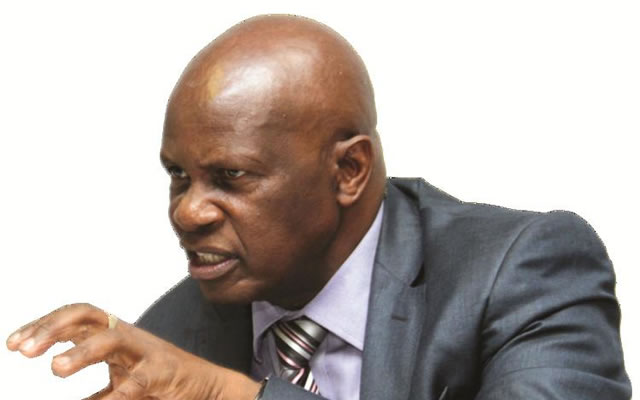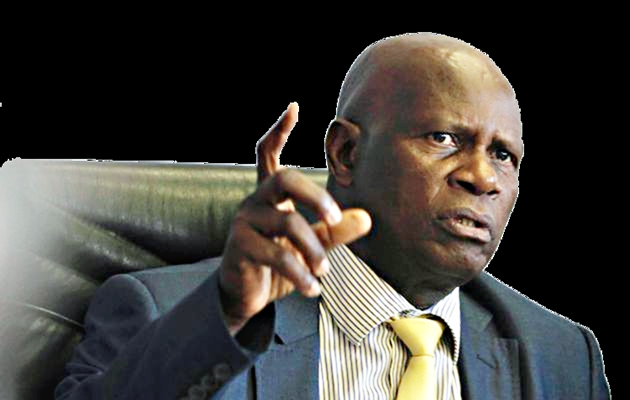European Union avails $270m development assistance to Zim

Lloyd Gumbo / Conrad Mwanawashe Harare Bureau
ZIMBABWE and the European Union yesterday signed a cooperation agreement for the release of 234 million euros ($270 million) in development assistance, marking the first time since 2002 that the European bloc has channelled funds through Treasury.The revelations come as Western donors announced they had stopped availing money to anti-government organisations in Zimbabwe after they failed to account for over $850 million extended by USAid as part of the illegal regime change agenda between 2011 and 2014.
But government said while the EU gesture was a step in the right direction, the maintenance of the illegal sanctions regime by the bloc on the First Family, poisoned the relationship thereby retarding full enjoyment of the new economic cooperation between Zimbabwe and the EU.
As such, Finance and Economic Development Minister Patrick Chinamasa, called for the unconditional lifting of sanctions on President Mugabe and the First Lady Cde Grace Mugabe if the relations were to be fully restored.
Speaking at the signing ceremony of the $270 million National Indicative Programme (NIP) sponsored by the 11th European Development Fund (2014-2020) yesterday, Minister Chinamasa called for political dialogue between Zimbabwe and the EU hinged on the removal of the illegal sanctions on the First Family if the dialogue was to bear fruit.
The NIP is a joint framework between the government and the EU that will guide the formulation and implementation of projects funded by the 11th European Development Fund (11th EDF).
“It will be the first time since 2002 that the EU is engaging the government of Zimbabwe directly with development assistance funds being channelled through Treasury and not through NGOs as was the case before,” said Minister Chinamasa.
“While we’ve taken these significant steps towards normalisation of Zimbabwe-European Union relations, we must remain cognisant of the fact that there is still unfinished business. The Zimbabwean economy has a chief executive and as long as the chief executive remains under sanctions, our relations remain poisoned and unproductive.
“I, therefore, take this opportunity to call for the unconditional lifting of sanctions against our Head of State His Excellency and the First Lady.”
Minister Chinamasa said Zimbabwe was open for business and said the EU countries were welcome to invest in the country.
The funding will be concentrated in the framework of the NIP on health, agriculture and governance and institution building, sectors that are key in the implementation of Zim-Asset.
Health will receive 88 million euros with the objective of improving health outcomes for the population of Zimbabwe by supporting the national health system and increasing equitable access to quality services.
The EU will contribute to the creation of a diversified, competitive, efficient and sustainable agricultural sector through the release of 88 million euros to the agricultural sector.
A further 45 million euros will be channelled towards governance and institution building in a bid to strengthen the rule of law through institutional capacity building.
While the NIP spans between 2014 and 2020, half the total money will be released this year.
Head of the EU Delegation to Zimbabwe, Ambassador Philippe Van Damme, said the signing of the NIP signified a step in cooperation with the country.
“We look forward to work in all the strategic and important areas covered by this National Indicative Programme, with the aim to foster the political and economic reforms Zimbabwe is undertaking,” said Ambassador Van Damme.
“In the past we may not have always been in agreement on the way forward to achieve our common objectives, we may not always have agreed on the way to translate the shared values into coherent policies towards achieving those goals, but the will and commitment have always been there to search for common strategies.”
He said the EU was happy to compete with the East in investing in Zimbabwe as long as the relationship is founded on equality.
Secretary for Finance and Economic Development and National Authorising Officer, Willard Manungo, said the EU funding had come at an opportune time following the lapse of Article 96 of the Cotonou Agreement on November 1, last year.
“The EU support will go a long way in complementing the government’s efforts in providing an enabling environment for sustainable economic empowerment and social transformation to the people of Zimbabwe as we implement Zim-Asset,” Manungo said.











Comments